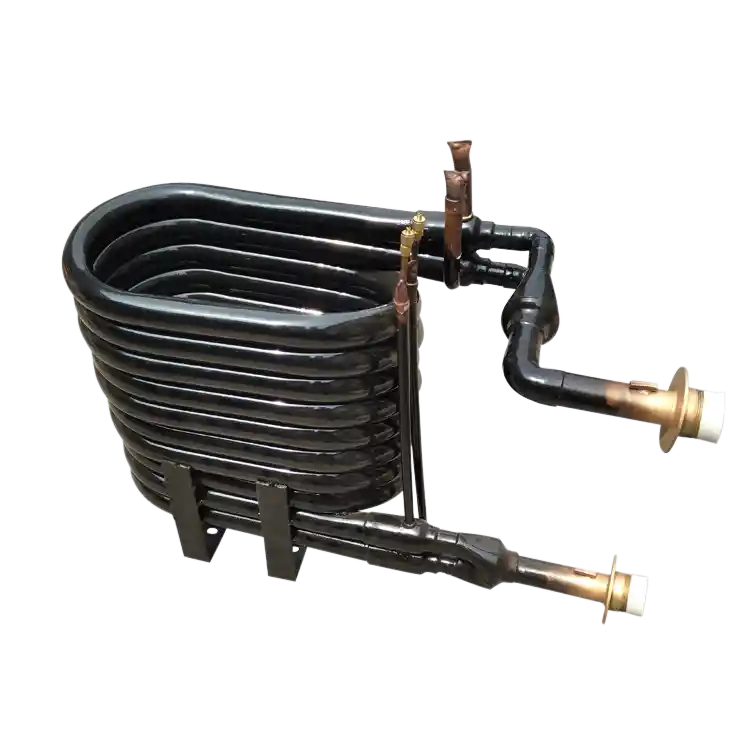Introduction
In this article, we will explore the application of coaxial heat exchangers in industrial processes. Coaxial heat exchangers play a crucial role in optimizing heat transfer and temperature control in various industrial applications, improving efficiency and productivity.
1. Understanding Industrial Processes
Industrial processes encompass a wide range of applications across various sectors. Coaxial heat exchangers find utility in these processes by efficiently transferring heat between fluids, enabling precise temperature control and enhancing overall performance.
1.1 Importance of Temperature Control in Industrial Processes
Accurate temperature control is critical in industrial processes to ensure product quality, enhance process efficiency, and promote safety. Coaxial heat exchangers offer effective heat transfer solutions, enabling precise temperature regulation in industrial applications.
1.2 Role of Coaxial Heat Exchangers in Industrial Processes
Coaxial heat exchangers contribute to the optimization of industrial processes in several ways:
| Benefits | Descripción |
|---|---|
| Efficient Heat Transfer | Coaxial heat exchangers facilitate efficient heat transfer between fluids, improving process efficiency and reducing energy consumption. |
| Temperature Control | By regulating the heat exchange between fluids, coaxial heat exchangers enable precise temperature control, ensuring consistent and optimal process conditions. |
| Thermal Separation | Coaxial heat exchangers allow for thermal separation between different process fluids, preventing cross-contamination and maintaining product integrity. |
| Corrosion Resistance | The corrosion-resistant design of coaxial heat exchangers ensures durability and reliability, even in harsh industrial environments. |
| Compact Footprint | The compact size of coaxial heat exchangers allows for space-saving installations, making them suitable for industrial applications with limited space availability. |
2. Applications of Coaxial Heat Exchangers in Industrial Processes
Coaxial heat exchangers find diverse applications in industrial processes, contributing to improved efficiency and performance across various sectors.
2.1 Chemical and Petrochemical Industries
The chemical and petrochemical industries rely on coaxial heat exchangers for critical processes such as distillation, reactor cooling, and heat recovery. These heat exchangers ensure efficient heat transfer, enabling precise temperature control and enhancing process efficiency.
2.2 Oil and Gas Refining
In oil and gas refining operations, coaxial heat exchangers play a vital role in heat recovery, condensation, and cooling processes. They enhance energy efficiency by recovering and reusing heat from different streams, reducing overall energy consumption and optimizing resource utilization.
2.3 Power Generation
Coaxial heat exchangers are employed in power generation plants, including thermal power plants and nuclear power plants. They assist in cooling condensers, heat recovery systems, and maintaining optimal operating temperatures, improving overall plant efficiency.
2.4 Food and Beverage Processing
Coaxial heat exchangers are utilized in food and beverage processing industries for processes such as pasteurization, sterilization, and cooling. They ensure precise temperature control, minimizing heat loss and preserving product quality.
2.5 Pharmaceuticals and Biotechnology
In pharmaceutical and biotechnology industries, coaxial heat exchangers are integral to processes such as fermentation, purification, and sterilization. They provide efficient heat transfer, maintaining process stability and product integrity.
2.6 Metalworking and Manufacturing
Coaxial heat exchangers find applications in metalworking and manufacturing processes, including heat treatment, cooling of industrial equipment, and heat recovery from exhaust gases. They contribute to energy savings and process optimization.
Conclusion
Coaxial heat exchangers play a significant role in enhancing industrial processes by enabling efficient heat transfer, precise temperature control, and thermal separation. Their versatility and durability make them a valuable component in various industrial applications, improving efficiency, productivity, and sustainability. By harnessing the benefits of coaxial heat exchangers, industries can optimize their processes and achieve better performance in a wide range of sectors.


